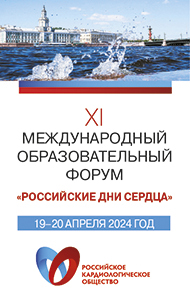Study shows benefits of nerve stimulation for stroke patients
A recent study at the University of Texas at Dallas found that vagus nerve stimulation technology could help reduce impairments among people with stroke.
The results are published in the journal Stroke.
Vagus nerve stimulation (VNS) sends a mild electric pulse through the vagus nerve, which relays information to the brain and encourages it to reorganize through neural plasticity. VNS has been approved by the FDA for treatment of illnesses including depression and epilepsy.
The new study found that VNS experimental treatment is safe for patients recovering from stroke and shows significant potential for reducing impairment, according to a press release.
“This ‘first in humans’ study appears to demonstrate improvement in the recovery that stroke patients make,” Michael Kilgard, PhD, professor of neuroscience at the University of Texas (UT) at Dallas and coauthor of the study, said in the press release. “This was a small study and there is more work to be done, but this is an exciting result.”
The study included 20 people who experienced arm weakness due to stroke. Participants were randomized into two group, one of which received only rehabilitation therapy and the other which received rehabilitation therapy and VNS experimental therapy. Both groups underwent therapy for 6 weeks.
The group that only received rehabilitation improved their scores on the Fugl-Meyer assessment scale, used to measure recovery in stroke patients, by an average of 3 points. The group that also received VNS experimental treatment improved by an average of 9 points. In addition, several participants who received VNS reported greater motion and strength in their stroke-affected arms.
“This study demonstrates that vagus nerve stimulation appears to improve the recovery that stroke patients make,” Kilgard said. “VNS is triggered on successful movements to solidify gains that are made during physical therapy.”
While the study took place in Glasgow, Scotland, Kilgard said UT Dallas and UT Southwestern Medical Center have begun a new trial to provide VNS experimental therapy for local stroke patients.
“We are seeking several stroke patients in the Dallas area, each of whom will receive a VNS device as well as physical rehabilitation. We are looking forward to bringing this technology to U.S. patients for the very first time,” he said.
The new study will be double-blind, placebo-controlled and at multiple sites, according to Robert Rennaker, PhD, Texas Instruments Distinguished Chair in Bioengineering, director of the Texas Biomedical Device Center chairman of the Bioengineering Department and coauthor of the study.
“We already have seen a number of benefits from vagus nerve stimulation for other conditions,” Rennaker said in the press release. “We hope that we ultimately will see such success for stroke patients.”
Reference: Kilgard M, et al. Stroke. 2015;doi:10.1161/STROKEAHA.115.010477.
Disclosure: The researchers report MicroTransponder provided funding for the research.
Source: www.healio.com






